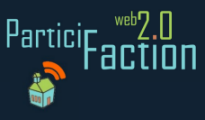I think it's hard to argue with the statement "what you know determines what you do." This seems true in many contexts, from eating when you're hungry to making career choices. People working in the education field are keenly aware of the implications of this statement within their context -- we try to make young people know more so that they have more, and more informed, choice in what they do.
Educators, however, work with a bias that may limit the knowledge, and thus the abilities, of the students of today. This bias is not immediately obvious to themselves, their students, or the public, and the educators are not alone in having this bias -- that's because the bias itself is hundreds of years old. Between the late 15th Century and, say, about 10 years ago, the effects of the invention of the printing press have been, increasingly, the key factor in the majority of the people of the Western world developing and maintaining a notion of "individuality."
We -- all of us, and not just teachers -- have this bias: individual students get their individual marks, and individual teachers make individual report card comments about what the individual students can do to become higher functioning individuals. It makes sense to us; so many of us take it for granted that the notion of being an individual is an intrinsic condition of being human.
As Eva McDonald reminds us in her recent paper, however, the notion of individuality is actually a cultural by-product, and cultures and their by-products change over time. She, referencing Mark Federman, notes that, with the advent of Web 2.0, the mass-collaborative nature of communicating via the internet is changing the culture of today's youth, and changing, for them, the old, well-established notions of individuality.
Do teens seem unconcerned with online privacy? Do they copy and paste internet content without regard for ownership? Do they share information online that us old geezers would never tell our friends? Do they seem to always need to be in touch with others, via Twitter, or Facebook, or Instant or Text Messaging? If you answered yes to any of these questions, consider the possibility that all are examples of a culture that values group notions over individual ones.
The ramification for education systems is huge. If what you know determines what you do, and we do not teach or encourage or allow "knowing" in this new, web 2.0 way in schools, then we are limiting what the students of today may do tomorrow, and fighting against a dramatic, important, new cultural shift that has huge implications for our collective futures.
Friday, March 13, 2009
Subscribe to:
Post Comments (Atom)




3 comments:
When Gutenberg was mentioned in this article, I assumed Ross was going to make the point that books are old school and that web 2.0 literacy was going to pave the way for future generations… The notion of declining individualism is compelling and fascinating, but my imperative to respond is the removal of books from their pedestal. Gutenberg transformed not just our Western cultural identity, but also established books and literature as the gateway to knowledge. That’s the bias many people, and especially educators, hold dear: if you don’t read, you can’t be smart. And as a high school English teacher, the decline of reading is even more alarming to me than the decline of individuality, the disregard for intellectual property rights, or public exhibitionism. Getting this generation of students to read instructions is challenging enough – getting them to engage in Shakespeare or other classic literature requires teachers to have the kind of creativity, enthusiasm, and motivational speaking talents used by parents to dress toddlers in the winter months… adolescents should know better. They should have learned the value of the written word, and learned that overcoming obstacles on the way to understanding an extraordinary novel is a reward in itself. Instead, they are consumed by the easy pleasures and instant gratification of their digital world.
"Gutenberg...established books and literature as the gateway to knowledge". Hmmm...tell that to Plato and a succession of other ancients who wrote down what they knew or believed. Books were well established in their role - Gutenberg merely ensured that books were much more widely available; that INFORMATION was much more widely available. His work (actually derived from the Chinese of course) led to the use of the vernacular in books and a gradual undermining of Latin as the preferred publishing language, as a succession of reformers saw opportunities. But it still took hundreds of years to get to the point where most of the Western world could read.
Looks like there is real merit in the concept of the decline of the importance of individual privacy - Twitter will only make that worse as even the web transmission of what I would call trivia, moves into real time.
If information is not handed down in a hierarchical way any more, via books and teachers and a fixed curriculum, will we enter a new "dark age" where the core of civilisation is transmitted to posterity by dedicated "monks" while the hoi polloi live happily in the present - the "instant gratification of their digital world"?
Looks like we're not the only ones contemplating this thread:
http://www.thestar.com/article/605192
--Ross.
Post a Comment